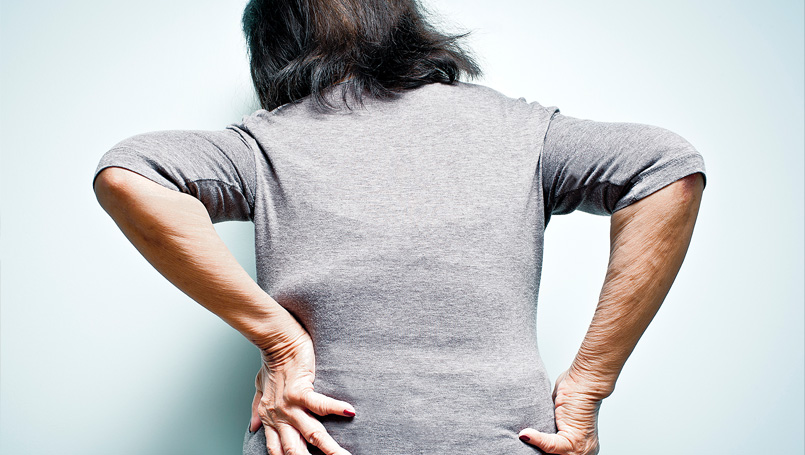
You might think it’s inevitable - the creaking, groaning and popping that can come with age. Many of us feel it in our hips, the two largest ball-and-socket joints in our bodies. And our hips are important. They’re responsible for mobility and posture.
“Hip pain” can be a bit non-specific to your doctor, though. If you bring it up with your doctor, be specific about where the pain is coming from and how it feels.
When it comes to the hips, pain is most common right in the joint, the inside of your hip or the groin. Pain in the upper buttocks or outside of the thigh usually stems from muscle, ligament, tendon or other soft tissue issues. However, for women, some gynecological issues can cause pain in the hips as well.
Limited range of motion and even a limp are more than enough reason to do something about your hip pain. You have several options for dealing with hip pain:
Dance around it
Steer clear of repeated movements that exacerbate your pain. If a certain exercise causes issues, try something with less impact such as riding a bike, walking or swimming. Also, try and avoid bending at the hip, sitting for a long time, or sleeping on the side that’s sore.
Pain relievers
If you can, try an over-the-counter pain reliever to address your hip pain. Medications, such as ibuprofen or Aleve, with an anti-inflammatory, may help more than Tylenol.
Ice or heat
Applying ice or heat to the area of your hip pain could also get you back on your feet sooner. For cold, use a bag of frozen vegetables wrapped in a towel. Conversely, a warm shower or a heating pad for a few minutes might help limber up tight muscles.
Drop a few pounds
It’s not easy to hear, especially if you’re hurting, but if you’re overweight, losing a few pounds can put less pressure on your hips. A well-balanced diet of vegetables and fruits along with low-impact exercise can do a world of good for your whole body, not just your joints.
If you’re worried you’re headed toward a surgeon’s office, there might be hope. According to the Arthritis Foundation, the best way to avoid hip replacement surgery is to get active in an exercise program. In a study, people who participated in an exercise program for 12 weeks were 44 percent less likely to need joint-replacement surgery six years later than those who did not exercise.
Relief for hip arthritis and bursitis
While there are many reasons for pain, a few of the more common include arthritis and bursitis. Depending on the cause, there are different things you can do to get some relief.
Arthritis
- Try low-impact exercises such as walking or swimming.
- Consider resistance training.
- Ease into a routing of gentle stretching.
- Ask your doctor about physical therapy.
Bursitis
- Avoid the activity that causes pain.
- Take over-the-counter pain relievers.
- Use an assistive device when walking, such as a cane or walker.
- Ask your doctor about steroid shots to the affected area.
Avoid hip pain
If you’re lucky enough to have avoided hip pain so far, there are a few things to try to keep it at bay:
- Warm up before you exercise.
- Avoid running on hard surfaces such as concrete.
- Wear shoes that fit properly.
- If you feel a twinge, know when to say “when” to avoid further injury.
The future of orthopedics begins today at Beaumont. With specialists knowledgeable in both surgical and non-surgical treatments for hip pain, we can give you a multitude of options to meet your specific orthopedic needs. If you’re considering hip surgery, trust the specialists who perform more joint replacements than anyone else in Michigan.
Information provided by Jeffrey Carroll, D.O., Beaumont orthopedic surgeon.
